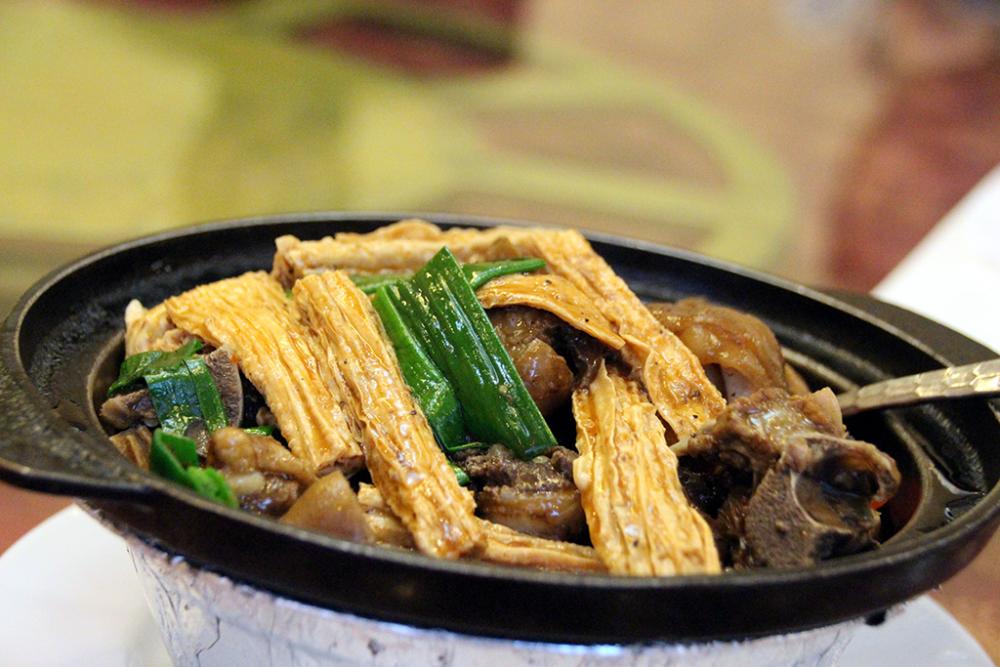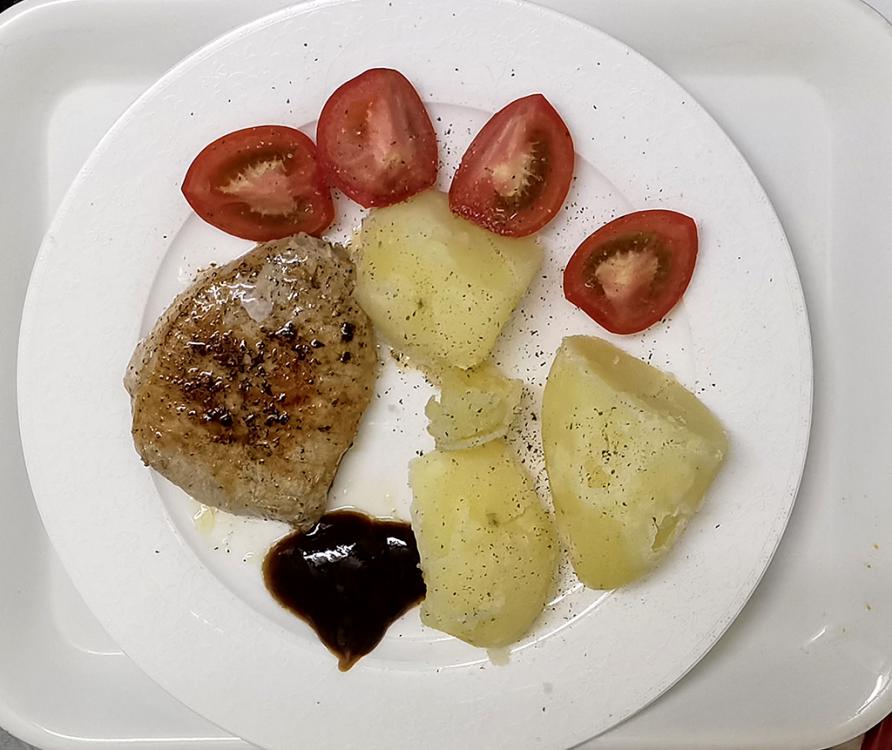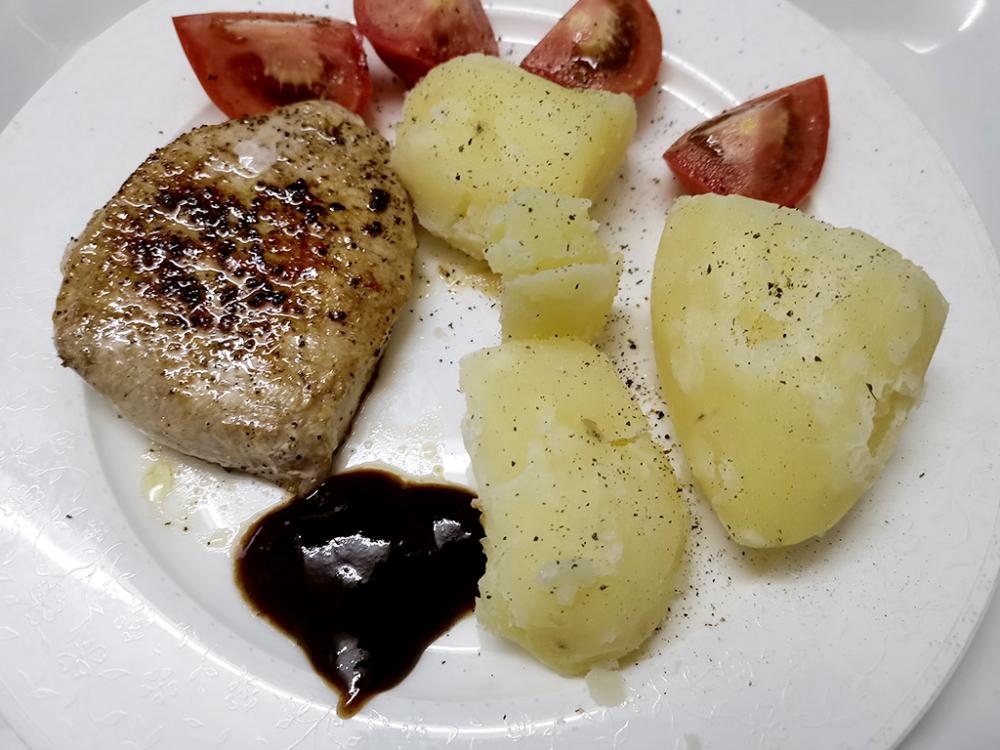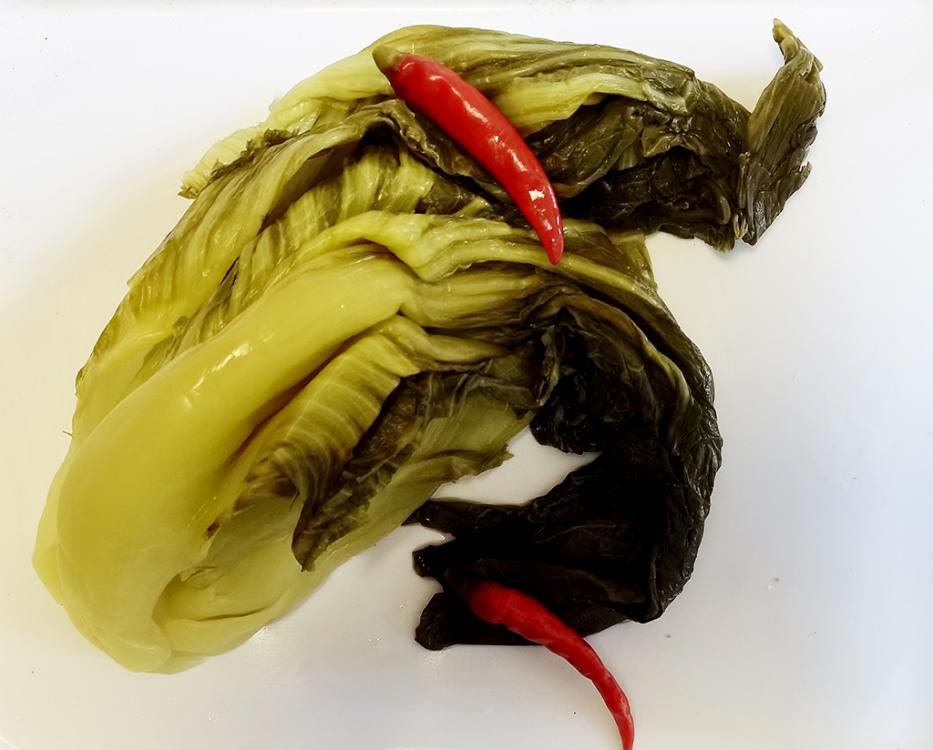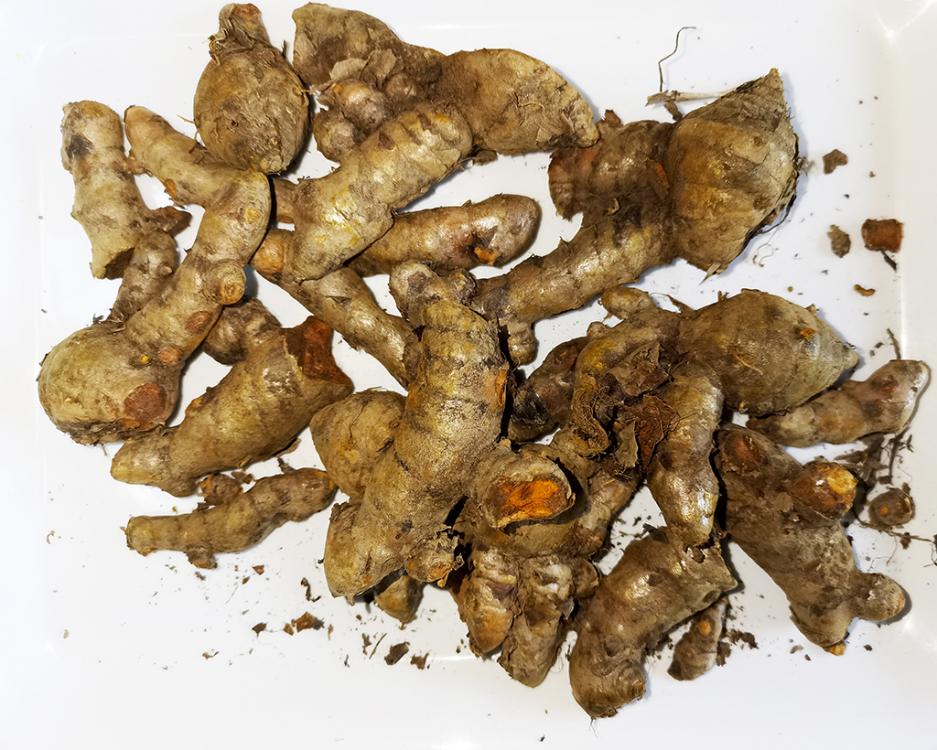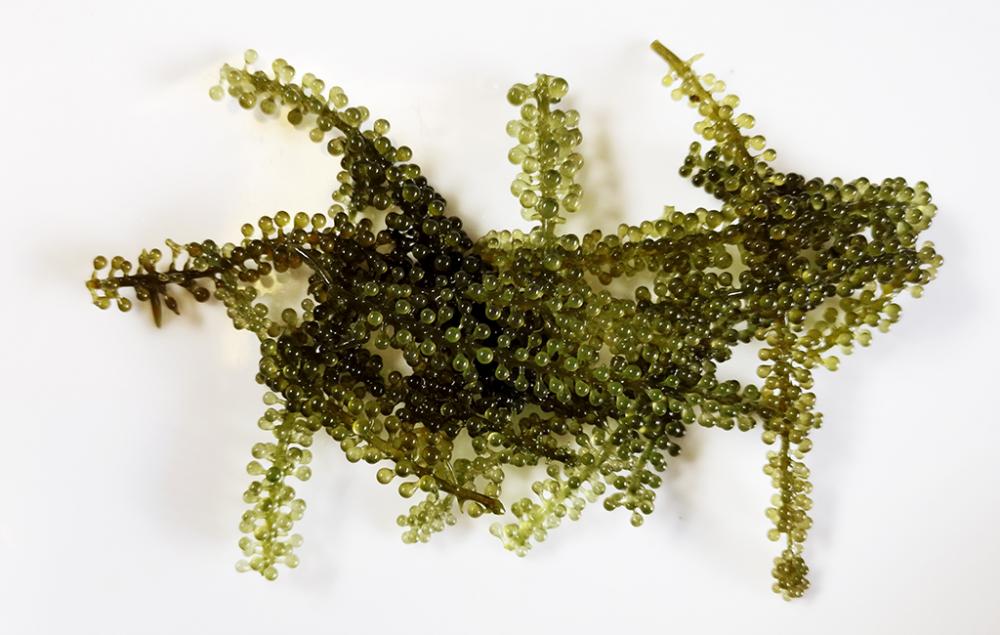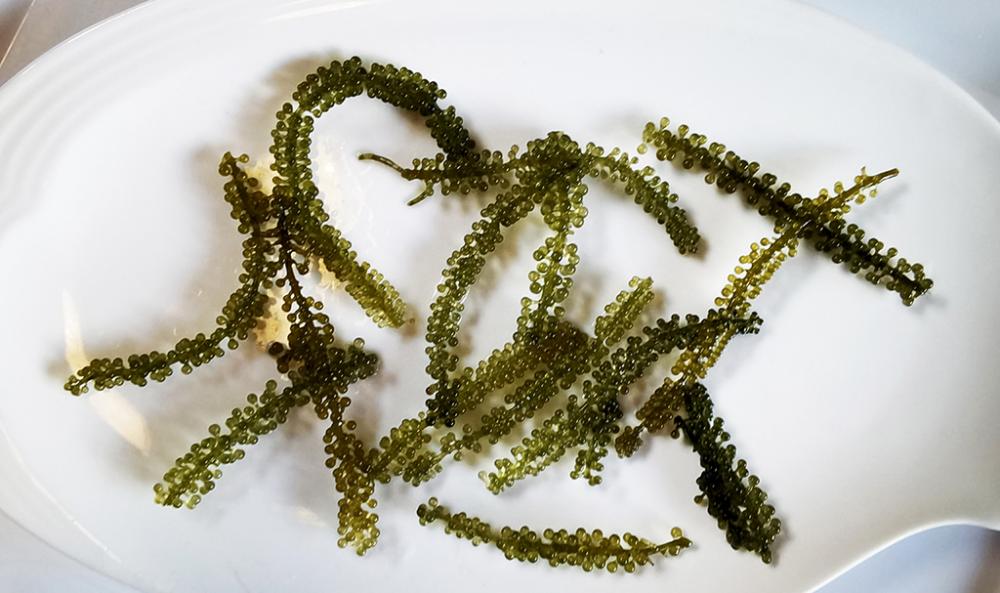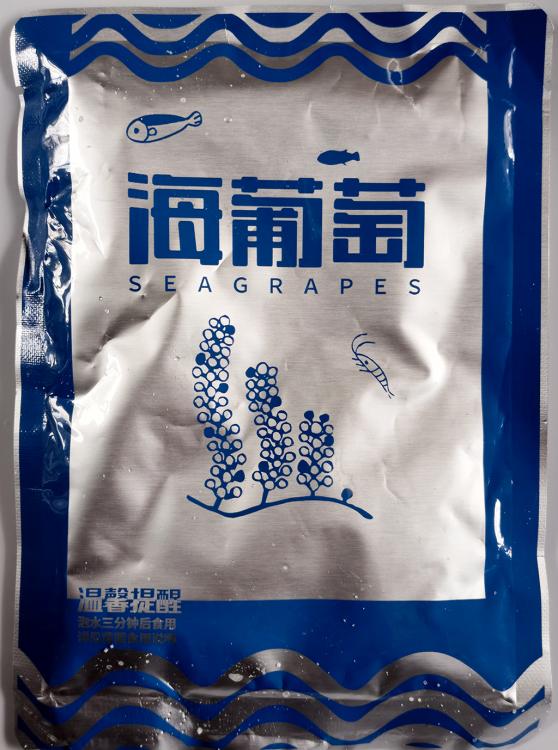-
Posts
16,813 -
Joined
-
Last visited
Content Type
Profiles
Forums
Store
Help Articles
Everything posted by liuzhou
-
As promised, I tried the sausage today. First I cut open a small section. This let me see inside. Too much rice; not enough blood. Then I fried it in rice bran oil (a neutral oil so as not to influence the taste) wihout any added seasoning. It was a little mushy and crumbly at the same time, but the taste was actually perfectly nice, especially after I added a little salt and black pepper. Not bad at all. Still prefer the local version, though. And Stornoway has nothing to worry about.
-
I found this to be fun when I spotted them in a local store. Not because of what it is; because of how the Chinese was mistranslated. Female raisins? The Chinese actually reads "Green Fragrance Concubine Raisins", which may seem to make even less sense, but does mean something sensible in Chinese culture. It refers to the Chinese 'beauty', 楊貴妃 (yáng guì fēi), literally "Highest Ranking Imperial Consort". Born in the year 719, she was No. 1 consort to the Tang dynasty Emperor Xuanzong (685-762). Many dishes are said to be her favourites, although there are so many that she must have been huge. In fact, she was described as 'large' or 'rotund', but standards of 'beauty' have changed. Here is one 14th century depiction (public domain image) of her being helped onto a horse by a team of attendants. Why the raisin company have mistranslated the Chinese remains a mystery although I'm not doubting that she was female. Perhaps they thought 'concubine' was too risqué for us sensitive foreigners. P.S. Many years ago, I was taken to what was described to me as "Chairman Mao's favourite DVD store!"
-

What did you buy at the liquor store today? (2016 - )
liuzhou replied to a topic in Spirits & Cocktails
-
25a. 肠 (cháng) – Sausage Of course, apart from cured meat to make bacon, meat can be preserved by turning it into sausages. There can be very few countries which don’t have their own versions and China is no exception. A variety of Chinese sausages 肠 (cháng) means ‘intestine’ but also is used to refer to many sausages, as they were originally encased in (usually) pig’s intestines. Most home made and traditional sausages still use natural cases. I guess the most famous Chinese is S*:腊肠 / T*:臘腸 (Mandarin: là cháng), the Cantonese sausages often known around the rest of the world as Lap Cheong (the Cantonese name). But there are many more. Here are a few of those I come across regularly. First let me say there are around four huge companies which process meat. Their products are indistinguishable from each other. In fact, they have all perfected the art of making their products all taste all the same – basically of nothing. These I am going to ignore, because I do. Industrial crap. I’m only, for the most part, interested in looking at hand made (often home made) products. I see most of these in the streets or in markets. Here are a few images. Unless noted otherwise, these are la chang. These belonged to the owner of the shop behind which is a local tobacconists. Home made. Too fatty for my taste Market stall - still hand made la chang, home made by the family of a Liuzhou friend whose mother is Cantonese. These were hanging on my kitchen wall. la chang in a local supermarket. Still hand made. Some other varieties. These above are cured and smoked sausages from 白色 (bǎi sè), a city in the west of Guangxi, bordering Yunnan and Guizhou provinces as well as Vietnam. 80% of the population are of the Zhuang ethnic group. The sausages were hand made by my Zhuang friend's mother. They have been cured and smoked. Sichuan Sausages The above are from Harbin, capital of China's northermost province, on the border of Russsia's Siberia in north-east China. Freezing cold in winter. The sausages are known as 荷尔滨红肠 (hé ěr bīn hóng cháng) or Harbin Red Sausage. They were introduced to China by Russians and closely resembly many East European types, especially those of Poland. Also popular around China are 血肠 (xuè cháng), blood sausage. I've sampled them in many parts of China. Usually pig's blood mixed with rice, sometimes regular rice; sometimes glutinous rice. I've never seen blood sausage industrially produced. Always hand made. Hunan Blood Sausage Blood sausage from the Korean ethnic minority in Jilin province, NE China. Blood sausage from a night street food market in Nanning, capital of Guangxi. My favourite. The local variety. Made in 宜州 (yí zhōu), the city next to Liuzhou. There are many more I've seen and even more I've heard of, but I haven't photographed. As I find them, I'll add them here in subsequent posts *S: means Simplified Chinese characters as used in most of China, while T: is Traditional Chinese characters as used mainly in Hong Kong, Macao and Taiwan. Traditional characters are still widely used among the Chinese diaspora, although that is changing.
-
What makes you think American style butchery is "proper", as opposed to any other kind? Billions of people around the world will disagree, especially those for whom eating goat is a regular occurence.
-
I like that they finish the recipes with "toss". Presumably this definition
-
I tend to agree. It doesn't look very appealing at all. I like my black pudding to be black! But, you've got to try! Well, I have to!
-
According to the 2010 census, there were officially 1,830,929 ethnic Koreans living in China and recognised as one of China’s 56 ethnic groups. The largest concentration is in Yanbian Korean Autonomous Prefecture, Jilin Province, in the north-east bordering - guess where – North Korea. They have been there for centuries. The actual number today is widely believed to be higher, with some 4 to 5 thousand recent refugees living there illegally. Anyway, what I have just taken delivery of is this Korean blood and glutinous rice sausage from Yanbian. I am an inveterate blood sausage fiend and always eager to try new examples from as many places as possible. I'll cook some tomorrow morning for breakfast and report back.
-
Having been reading the current eG Cook-Off #87: Potato Salad topic, I'm thinking of a potato salad using a turmeric mayonaisse. I always make my own mayo anyway. All I have to do is mix in some grated turmeric.
-
Yes. Many salads include cooked ingredients.
-
I've written before about the Miao people* who live just to the north of here. Here is a brief extract from a guide book to the area. Note that when they say 'sour', they mean 'pickled'. In Chinese, the word is the same -. 酸 (suān). Here is another excerpt from the Food Funnies topic in which a small typo changes the whole concept. * Munching with the Miao Moving with the Miao Harvest Lunch in a Miao Village
-
Clean and grate it. Use as ground turmeric.
-
I was just sitting here thinking about planting it, too. I've seen photos of the plant and it does look attractive. But, my main reason for wanting to plant it is that it is difficult to find here (and expensive by local standards). Even the ground turmeric isn't widely available. In fact, all Indian ingredients are difficult to source. The two countries don't get along. I'm guessing it can be grown from the rhizomes I have, just like ginger. I almost certainly won't find the seeds here. This site seems helpful.
-
I think this can be classified as a salad, albeit a cooked one. It is served cold as a side dish. To quote myself from this topic
-
I'm new to working with fresh turmeric, but in the past have often used the ground variety. While curries are the obvious choice, they are something I rarely do. I find it has a natural affinity with chicken. My go to chicken dish is something like this turmeric chicken recipe. Another is Moroccan Chicken with Preserved Lemons. It also goes well with coconut so I have made a variation on this Smashed Cucumbers with Turmeric, Coconut, and Peanuts Please note that I have never followed those recipes above to the letter; they are just what I can find similar to what I have done. Some other recipes that have caught my eye but I haven't made yet are: Honey-Turmeric Pork with Beet and Carrot Salad Grilled Clams with Aleppo Pepper, Tumeric, and Lime Butter Chicken Khao Soi Yellow Chicken Adobo P.S. I often add it to my fried rice.
-
-
It's just too hot to cook. I waited to dark, but it didn't cool any. 38℃/100℉. So very simple, minimal stove attendance dinner. Pork chops, boiled spud, tomato and HP sauce. Sustenance.
-
You beat me to it. I'd also add that in many cultures, including China, India, Jamaica, Cuba (to list somewhere I've eaten goat) most people would send any boneless goat meat straight back. They would find itf most suspect. Most countries have their own butchery techniques and cuts. The USA, Britain and France are all different. China and India ain't gonna change. Here in China, nearly all meat and fish comes on-the-bone.
-
24. 酒糟芥菜 (jiǔ zāo jiè cài ) - Wine Lees Mustard Leaf. This may look similar to the 酸菜 (suān cài) in the first post on this topic. It is the same vegetable, but is processed in a different way, resulting in a different taste. Whereas the suan cai is pickled in a brine, then pressed, this version is pickled in the dregs from rice wine production and is unpressed. It has a slightly yeasty taste, which I find pleasant and is much milder than the suan cai. Both are used in similar ways.
-
Pickilng kemp is a longstanding tradition worldwide. I've already posted examples of the Chinese treatment upthread.
-
I doubt it was the same species. It is native to the Indo-Pacific seas. I also doubt it has been introduced anywhere near New Jersey. Invasive species and all that. But I could be wrong.
-
23. 海葡萄 (hǎi pú tao), Sea Grapes, Caulerpa lentillifera Also known as Green Caviar in English, this is a type of seaweed or algae. It was first cultivated in the 1950s in Cebu in the Philppines after it was accidentally introduced to fish ponds. By 1986, it had reached Japan, before being cultivated in Vietnam and China. This lot came from Vietnam. The seaweed is washed and then brined in a sea-strength solution. This is how I bought it. It is then drained and soaked in cold, fresh water for three minutes and it's ready to eat. At room temperature. It does not react well to either heat or cold. It tastes of the sea, as you would expect, and has a delicate grassy flavour. But the most important quailty it has is the texture. It is crisp and the bubbles pop audibly in the mouth, like popping candy.
-
Like regular peanuts. Only the taste is different. They have a kind of smoky taste.
-
I think, by now, my aversion to all things c@rn is well-known. I am delighted to report that it apparently terrifies Satan, too! Nothing to do with the sausage. The batter!



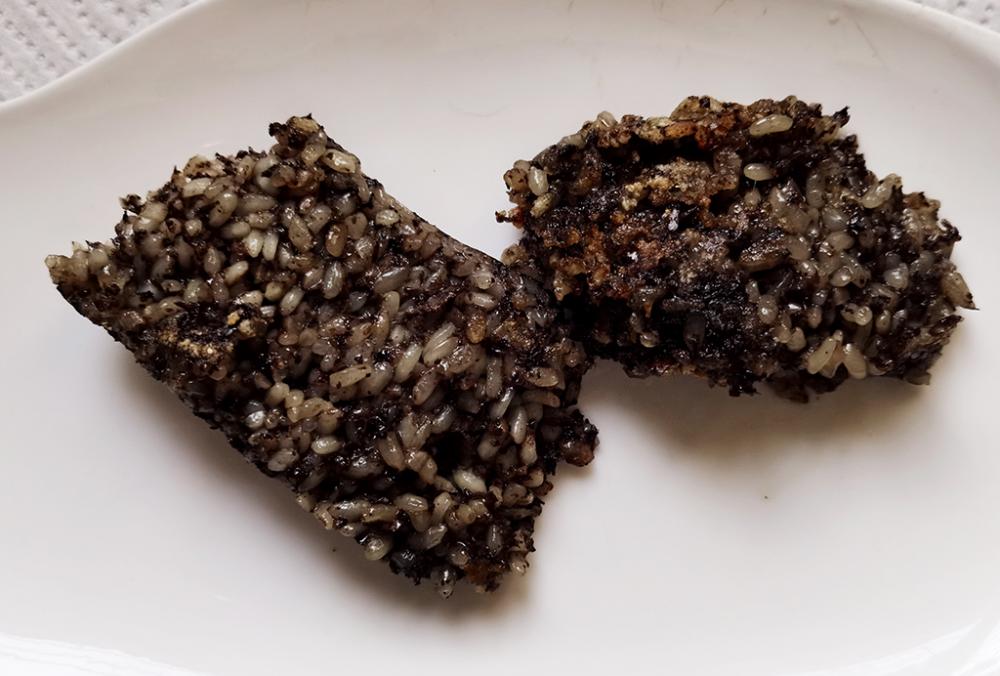


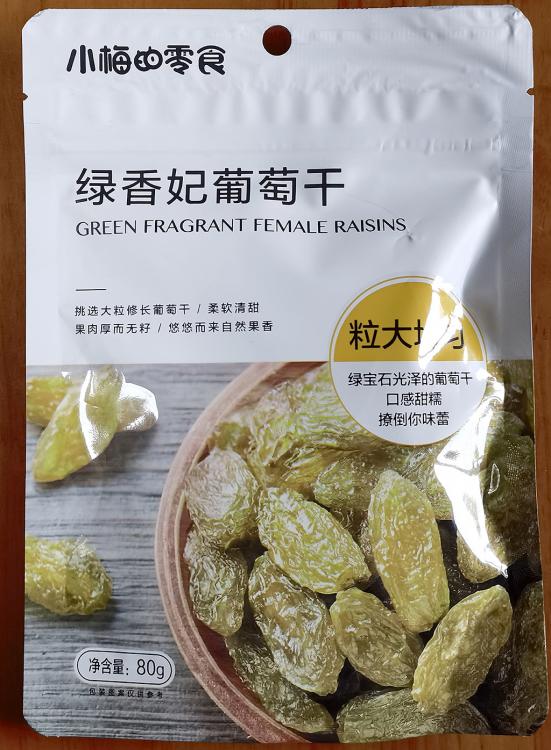
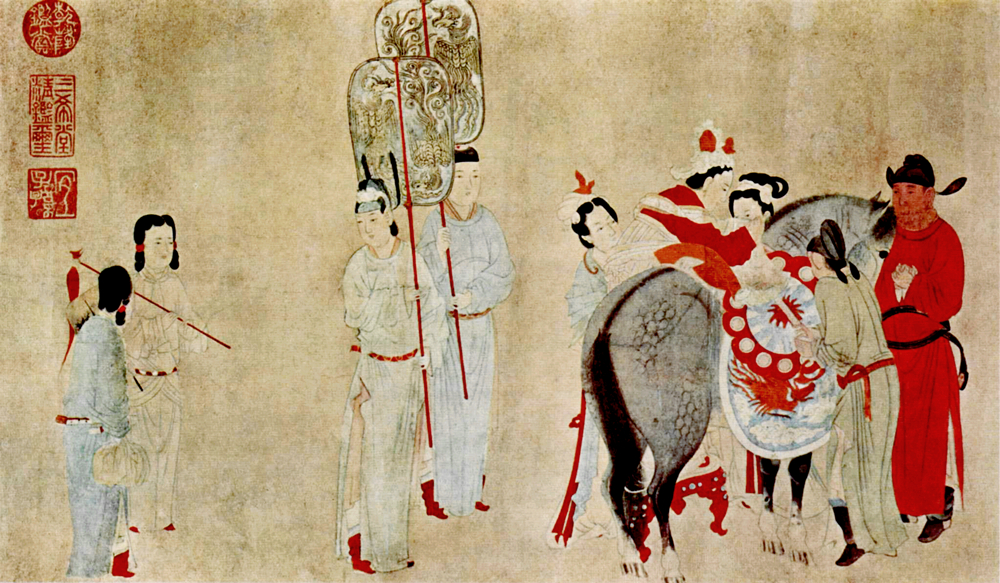

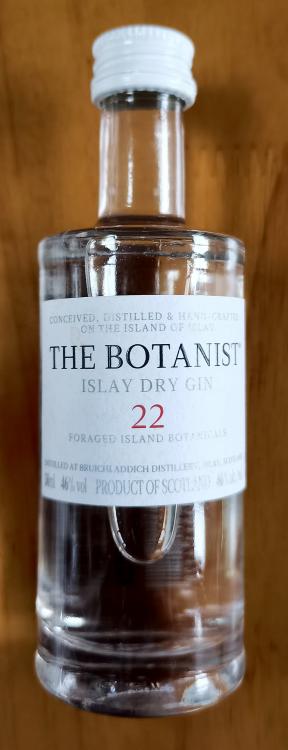
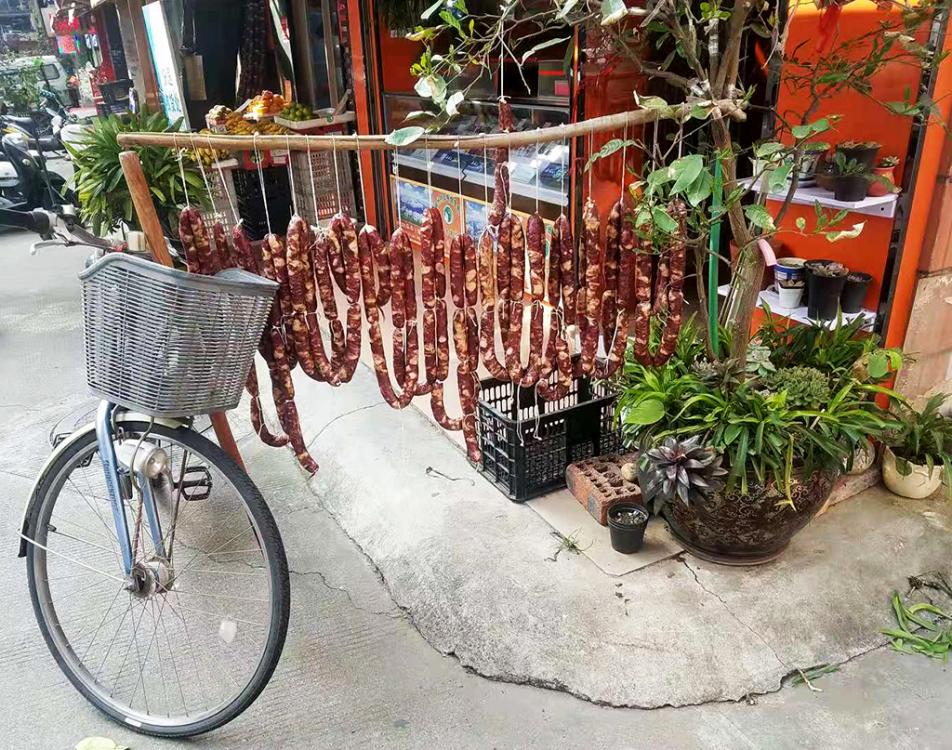
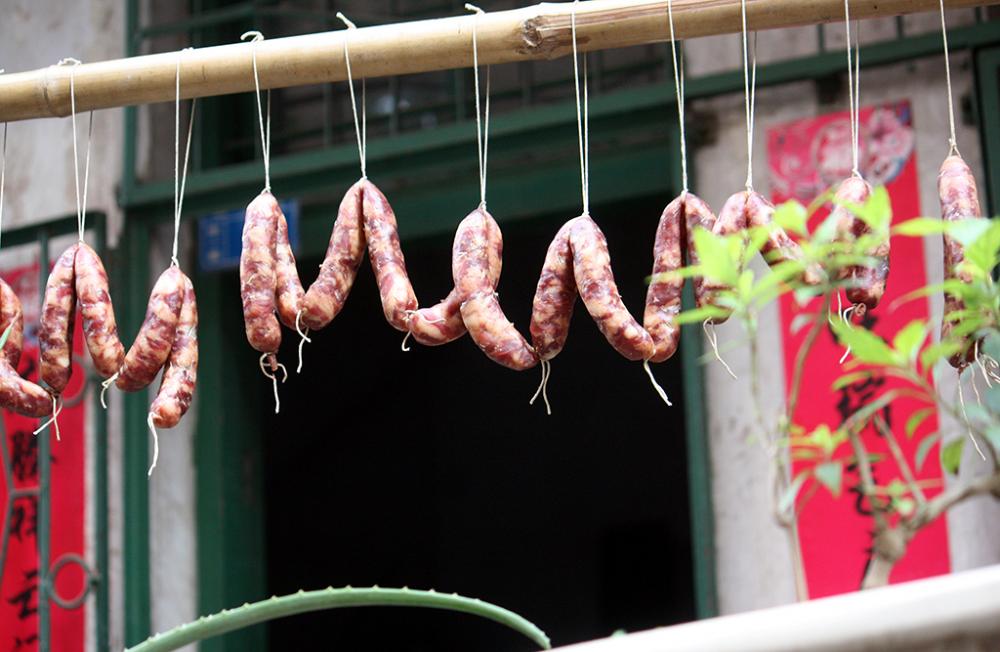
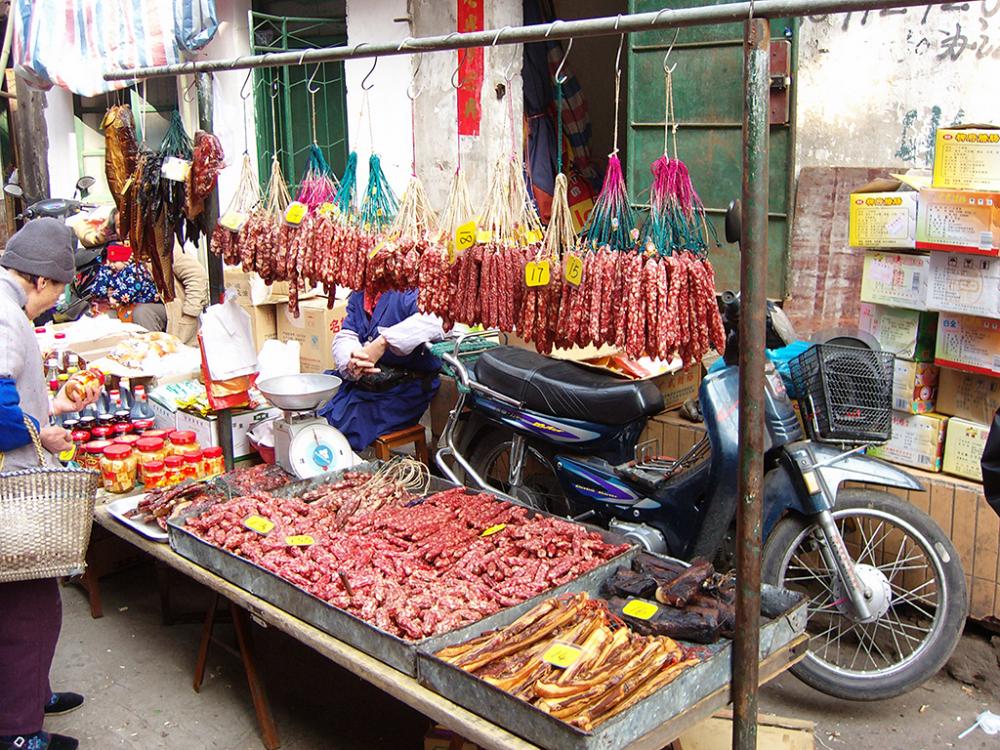
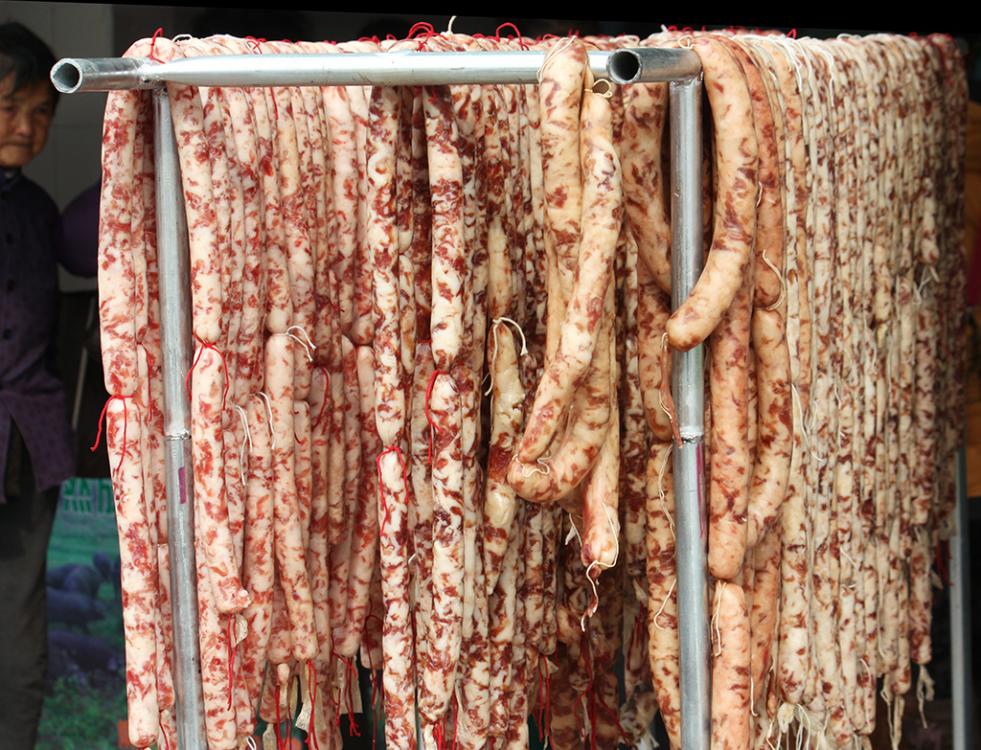
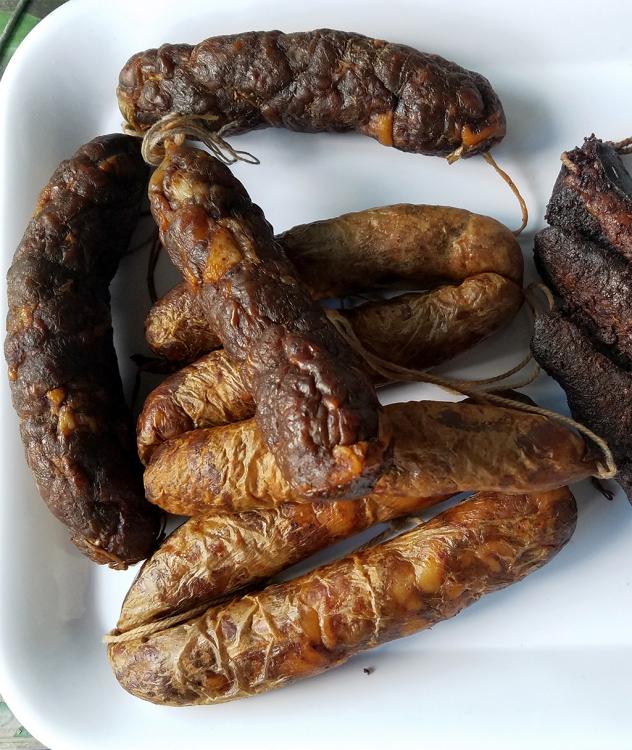
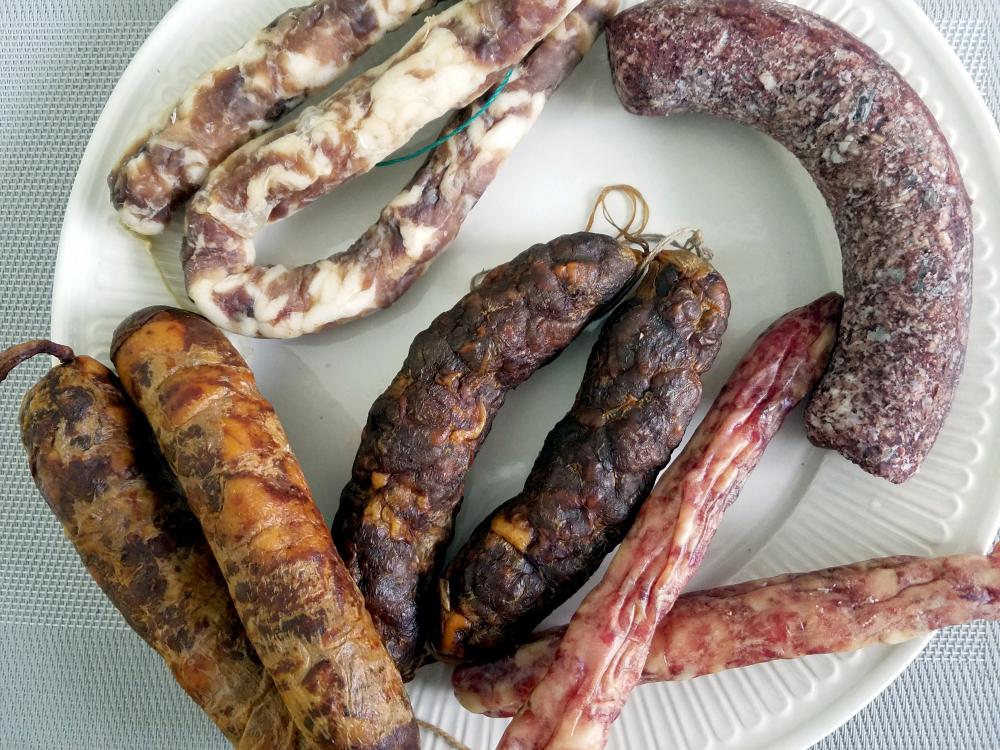
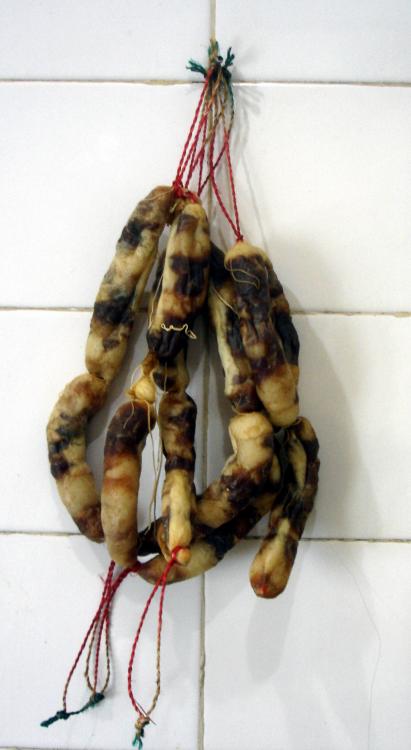
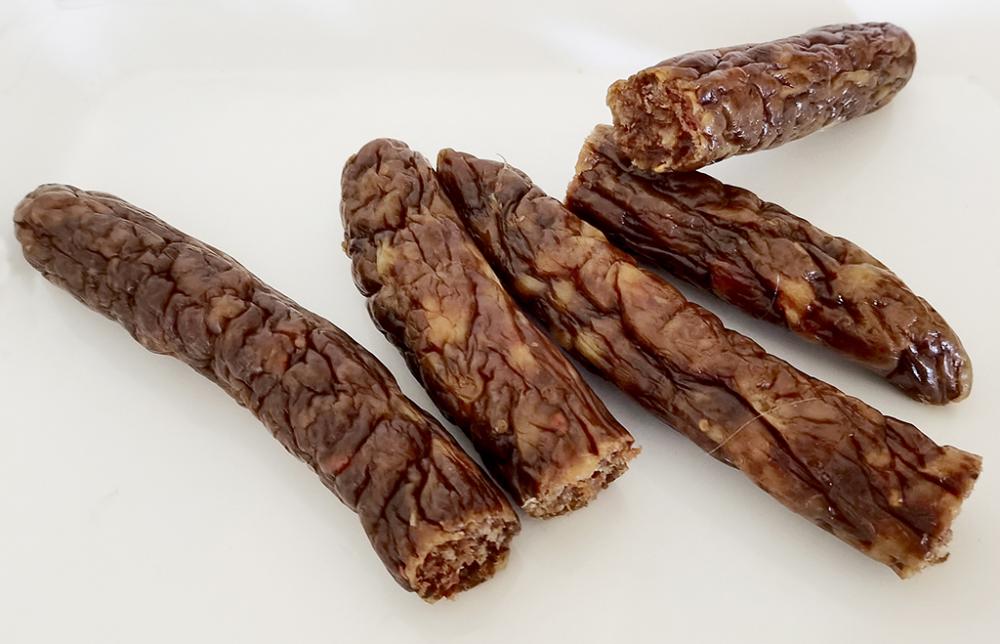

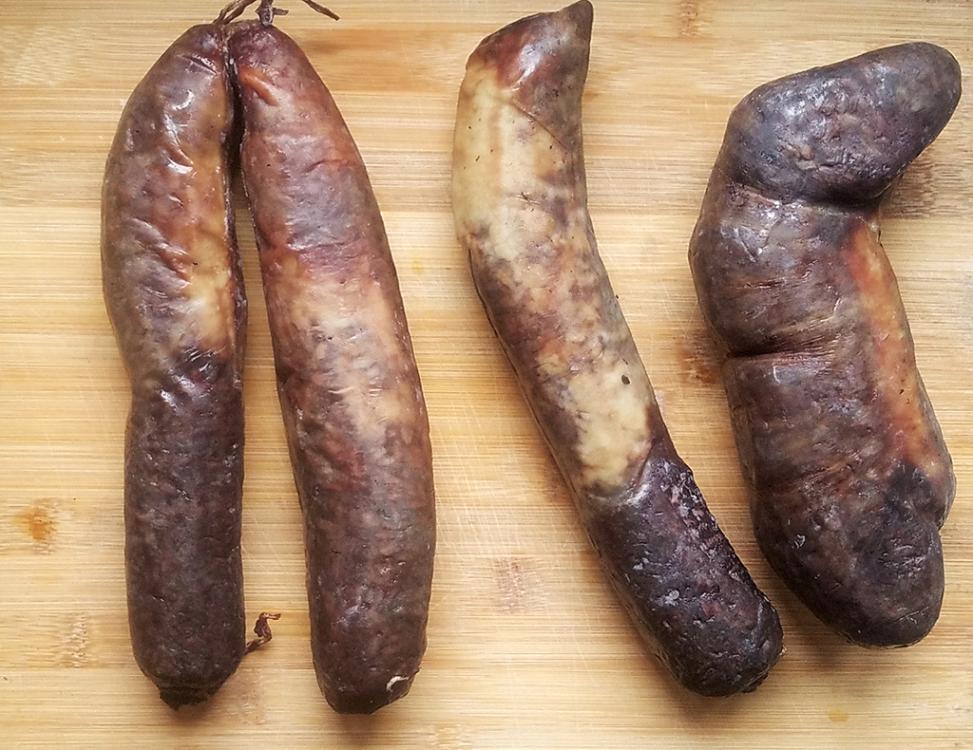
.thumb.jpg.edfc2d9f97315e8780eb10a9a7c82113.jpg)
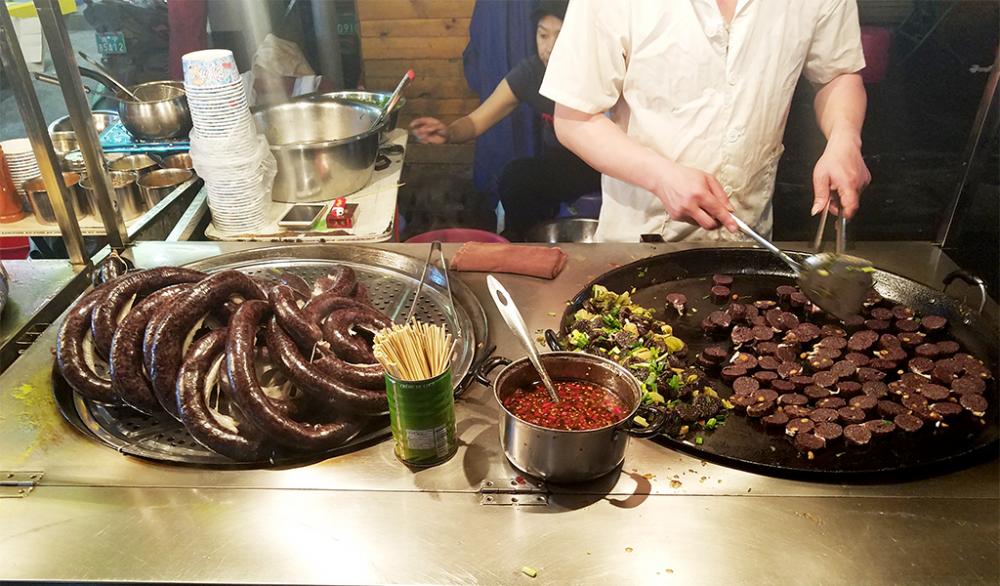
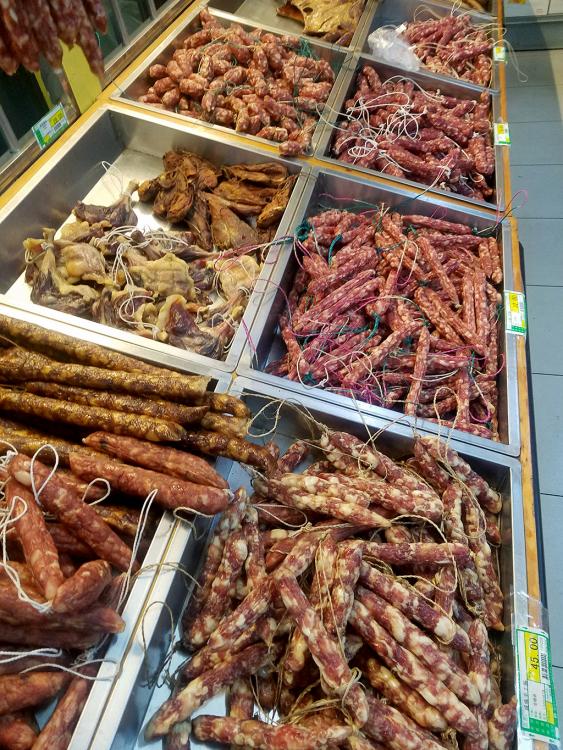
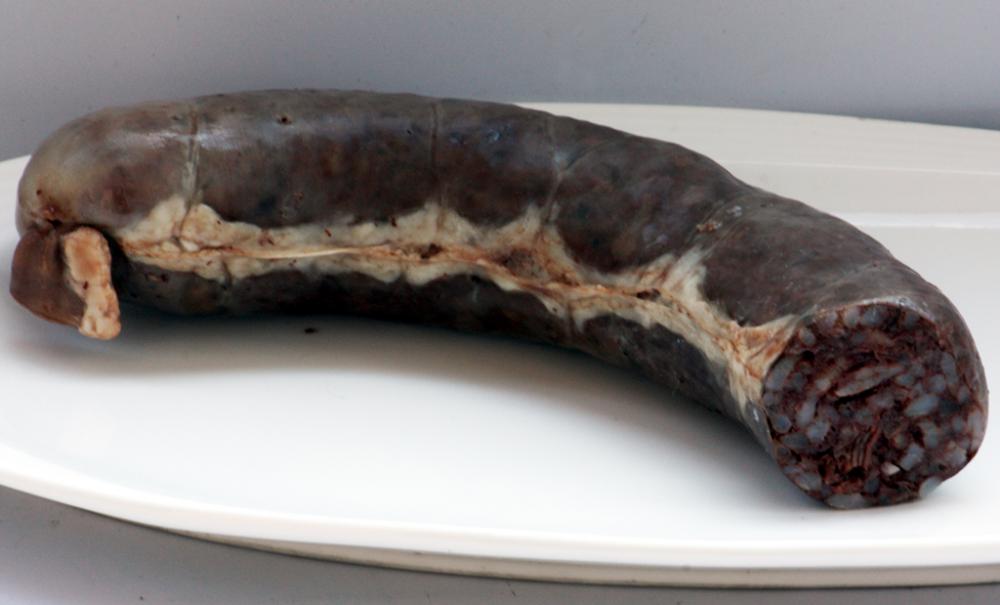
.thumb.jpg.f7b55ed2461d79f014af04dc3a669f43.jpg)
.thumb.jpg.74d9f933df2b740eec683b161224a07e.jpg)

